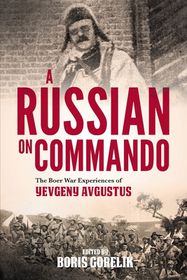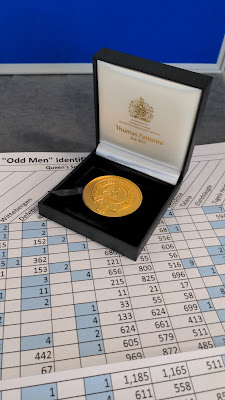The IY never fought as a unit in Natal so how did it's members come to be entitled to the clasp?
The Natal clasp was issued for service in Natal between 11th October, 1899 and 11th June, 1900, both dates inclusive who had not received a clasp for a specific action in Natal. It could not be issued with the Cape Colony clasp, see QSA Clasps.
The majority (49) of the IY Natal clasps were issued to the 20th (Fife and Forfar) Company, IY.
Of the the others, two awards can be understood even if the circumstances are not clear from available sources:
Squadron Sgt-Mjr 4617 MHF Harrison, 41st (Hampshire) Company earned two rare battle clasps for the IY, one of two Relief of Mafeking clasps and Natal.
He was a veteran of the 16th Lancers and men of his cavalry experience
were attached to the relief force, but not usually from the IY. How he
earned his Natal clasp is a not known. But is possibly related to the Relief of Mafeking, a good portion of the relief force came from Natal.
Pte 10269 HJ Pedley 56th (Buckinghamshire) Company, his service papers and medal rolls show entitlement to Cape Colony, Orange Free State and Transvaal. However, one roll, WO100-126p105 (56th company) shows the award of Wittebergen, Transvaal, and Natal referencing a letter that would show the reason why but, unfortunately this letter is lost.
The other eight awards are debatable with the available evidence:
Lt-Col RGW Chaloner, OC 1st bn Imperial Yeomany who sailed in March 1900 apparently earned the Belmont clasp (action of November 1899) and the Cape Colony and Natal clasps (mutually exclusive). He is also credited with Wittebergen which could be correct.
Seven members of the 47th (Duke of
Cambridge's Own) Company who had been captured at Lindley and later released (one escaped)
finding their way to Ladysmith in Natal by July 1900. Did they
enter Natal before the cut-off date of 11th June, it seems unlikely and
in any case were they "on the strength of a unit" to qualify, if so
which unit? They all earned the Cape Colony clasp which is mutually exclusive with the Natal clasp.
So, what about the men of the 20th company? They were part of the Second Contingent IY raised early in 1901. A newspaper report in February 1901 reported, "According to present arrangements the drafts will not go to Cape Town, but to Durban [Natal]. From thence they will be sent to Germanstown, which lies between Johannesburg and Pretoria." (The Courier 05-02-1901) The organisation and despatch of the Second Contingent was chaotic as well described by Will Bennett in his history of the IY, Absent-Minded Beggars (Leo Cooper 1999). Will does not mention this plan to land in Durban and proceed inland from there, so perhaps it was not put into practice.
The Shipping Lists are annoyingly vague in 1901 on the composition of the IY embarking for South Africa. A reason for this is that Second Contingent men were shipped in penny packets of about 50, so men from a number of companies embarked together. We know from IY service papers these men embarked about February 25th, this coincides with the sailing of the Orotava from Southampton. The Orotava docked at Cape Town, did it go on to Durban or did the men change ships?
A letter (St Andrews Citizen 11-05-1901) from an unnamed Fife & Forfar trooper confirms they landed in Durban and details their journey to join the 20th company resting at Bloemfontein. It is not explained why they didn't travel from Cape Town to Bloemfontein, a more direct route. Other Second Contingent men for the 20th company landed at Cape Town. The men landing at Durban took the rail route north through the recent Natal battlefields. At Newcastle, "we got the order to load our magazines and get ready - we got 100 rounds - for any emergency that might arise". Did this duty in anticipation of an attack satisfy the requirement of "on the strength of a unit" in Natal? The Boers did not attack and their train journey continued. They reached Bloemfontein on April 4th. Unfortunately their date of arrival in Durban is not mentioned. Two days later they began their work joining a column, their first night on the veldt was "spent on the wet ground. All the time the rain was pelting like mad, for a South African thunderstorm is a terrible thing." Welcome to the war.
The letter shows the men did indeed go to Natal and we know the purpose was simply to join their company in Bloemfontein. But, why Durban and not Cape Town is not at all clear.
Is the award of the Natal clasp understandable or debatable? Neither, the award must fall into the "not justified" category as their arrival was clearly after the cut off date for the clasp of 11 June, 1900. I was recently able to inspect one of the medals, that awarded to Trpr 25542 P Grant. The medal is clearly as issued, all the rivets are as perfect as one could hope for.
From this it is clear there was no doubt when the medal was issued that the medal roll entitlement was correct. Other clasp entitlements, notably for Wepener, were challenged and one can see this clearly on the medal rolls. There was no attempt to recall these clasps as was seen with other issuing errors.
Of the 59 awards just six have been recorded on the market, four of the 20th company and SSM MHF Harrison's DCM group.







